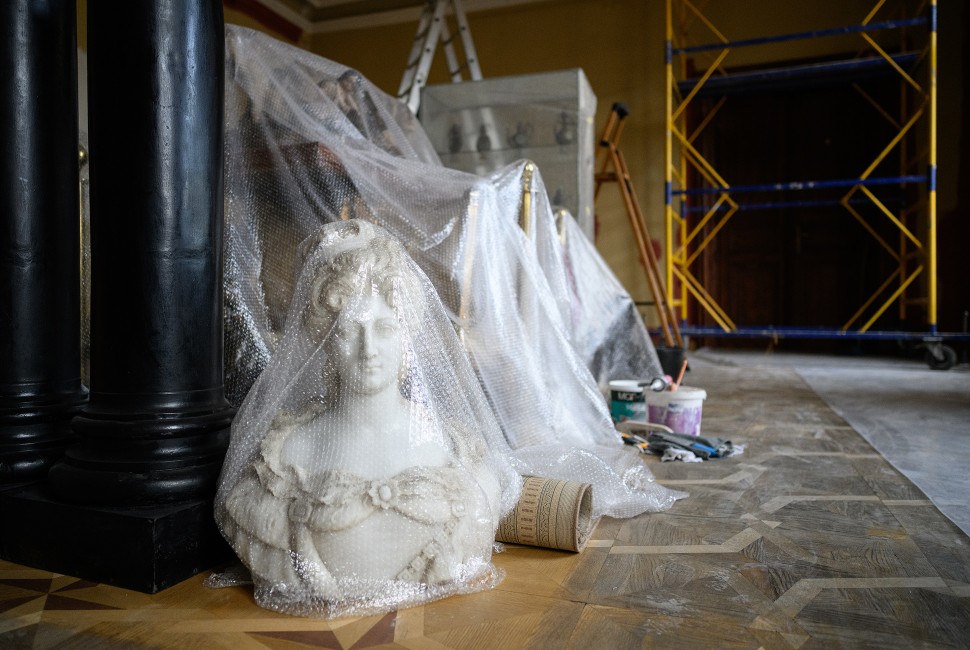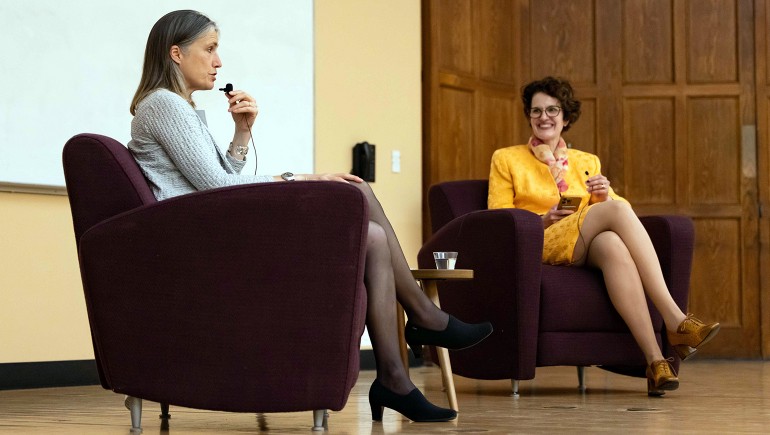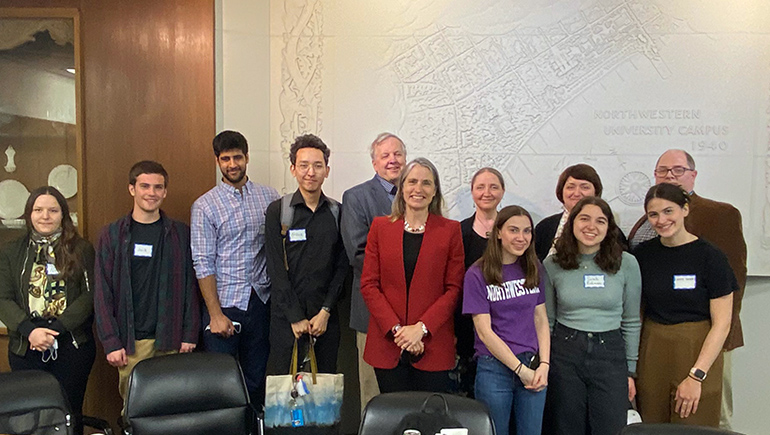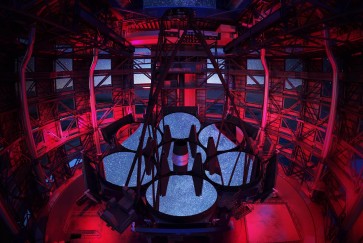The mind of Russian President Vladimir Putin baffled analysts months ago as they sought to determine whether he will invade Ukraine. They wondered whether it made any sense for him to do so. Some thought he was just bluffing.
But Fiona Hill saw it coming.
The longtime Russia expert and former White House national security official understands Putin’s mind.
“This invasion is all about history,” Hill told attendees on Monday at an event hosted by the Northwestern Buffett Institute for Global Affairs. “Putin is actually fighting for his version of history.”
Video: Watch the fireside chat with Fiona Hill
Hill then recounted instances that illustrate Putin’s obsession with history.
When Putin said several years ago that the greatest catastrophe of the 20th century is the collapse of the Soviet Union, he wasn’t necessarily fawning over the bygone days of communism. Instead, he was lamenting the loss of another incarnation of the Russian state, Hill explained. “Putin has lambasted Vladimir Lenin,” Hill added, because the revolutionary leader’s biggest mistake, Putin thought, was creating a separate Ukrainian republic inside the Soviet Union in 1929.
When Hill travelled with a White House delegation to Moscow, she noticed that Putin’s room — famed for its long table — has four statues. The first one is Peter the Great, the man credited with consolidating the Russian empire. The second is Catherine the Great, seen as the one who incorporated the lands Putin is fighting over right now — the Crimean Peninsula, the Donbas region, and other areas that have suffered the heaviest bombardment like Mariupol. The third is Nicholas the First, who tried to expand Russian influence in the Black Sea.
And because of Putin’s infatuation with history, Hill said she doesn’t see an endpoint in this conflict.
“How would you negotiate history?” Hill said.
Annelise Riles, executive director of the Northwestern Roberta Buffett Institute for Global Affairs, moderated the conversation. She asked Hill about the nuclear saber-rattling coming out of Russia in recent months, and also the arguably similar rhetoric by former President Trump when he was in office.
Hill explained that, unlike what many people think, Trump was “more measured” on nuclear issues. “He … genuinely believed that nuclear weapons were … the most serious existential threat and he said this repeatedly,” Hill said. “It just got lost in the mix of all the other things that he said.”
She also revealed that when Putin flaunted his nuclear missiles’ ability to reach Florida in 2018, she heard Trump say, “real countries don’t do that.”




